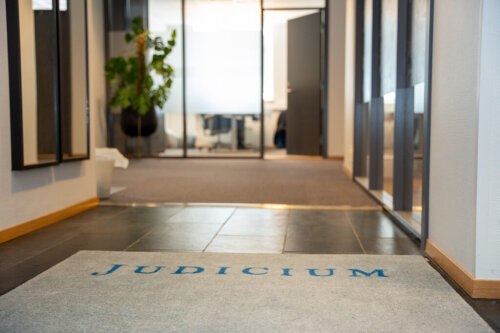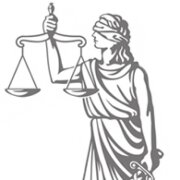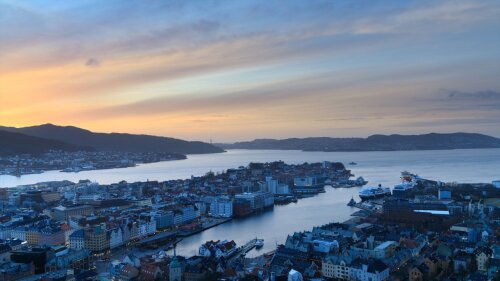Best Water Law Lawyers in Bergen
Share your needs with us, get contacted by law firms.
Free. Takes 2 min.
List of the best lawyers in Bergen, Norway
About Water Law in Bergen, Norway
Water Law in Bergen is governed by a combination of national legislation, EU directives, and local regulations. Bergen, known for its heavy rainfall and unique geographic location, places special importance on the management, protection, and use of water resources. Laws address water quality, rights to water usage, wastewater management, stormwater, and environmental protection. These rules aim to balance the needs of residents, businesses, agriculture, industry, and the environment.
Why You May Need a Lawyer
There are several situations where individuals or organizations may require legal assistance in the field of Water Law:
- Disputes over water rights and access
- Issues involving pollution or contamination of water bodies
- Compliance with wastewater or stormwater regulations
- Obtaining permits for construction or land development near water sources
- Conflicts related to the use of lakes, rivers, or coastal areas
- Claims of property damage caused by flooding or water runoff
- Ensuring compliance with national and EU water quality standards
- Legal actions involving municipal authorities or environmental agencies
A lawyer who specializes in Water Law can help you understand your rights and responsibilities, navigate complex legal frameworks, and represent your interests in disputes or before governmental agencies.
Local Laws Overview
Bergen’s water legislation operates within the framework of Norwegian national law, particularly the Water Resources Act (Vannressursloven), the Pollution Control Act (Forurensningsloven), and the Planning and Building Act (Plan- og bygningsloven). Several aspects are particularly relevant for locals:
- Right to Water: Landowners generally have the right to use surface and groundwater on their property, but must avoid causing harm to neighbors and the environment.
- Pollution Control: Strict regulations limit the discharge of pollutants into waterways, holding individuals and companies accountable for contamination.
- Permits and Approvals: Most activities that could impact water resources, such as construction near rivers or lakes, or altering natural watercourses, require advance permits from the municipality or relevant national authorities.
- Stormwater Management: Due to heavy rainfall, Bergen authorities have specific rules regarding diverting and managing surface water, especially in urban development projects.
- Conservation Areas: Certain lakes, rivers, and wetlands are designated as protected or have special use restrictions to safeguard biodiversity and drinking water.
Violations can result in penalties, required remediation, or legal liability for damages.
Frequently Asked Questions
What is Water Law in Bergen?
Water Law refers to the body of laws and regulations governing the use, management, and protection of water resources in Bergen. It covers water rights, pollution control, construction near water bodies, and conservation efforts.
Who owns the water in Bergen?
In Norway, water is a public resource. While landowners may have certain rights to use water on their property, water cannot be owned in a traditional sense and must be used according to legal requirements that protect other users and the environment.
Do I need a permit to build near a river or lake?
Yes, most construction or alteration work near a water body requires permits from local or national authorities to ensure that the activity does not harm water quality or natural flow.
What should I do if my property is affected by flooding?
If your property is damaged by flooding attributed to human action or negligence, it may be possible to claim compensation. It is important to document the damage and consult a Water Law specialist.
Can I divert water from a stream on my property?
Landowners may use water on their property for reasonable purposes but must ensure that this does not harm the rights of others or the environment. Significant alterations usually require permission from authorities.
Who is responsible for stormwater management in Bergen?
Both the municipality and individual property owners have responsibilities to manage stormwater. Municipal regulations outline how water should be diverted and treated, while property owners must prevent runoff from causing damage to others.
What happens if someone pollutes a waterway?
Causing pollution to waterways is a serious offense in Norway. Offenders can face penalties, be required to clean up the contamination, and compensate affected parties.
Are there special rules for using water near protected areas?
Yes, activities near protected lakes, rivers, or wetland areas are subject to stricter regulations and may be prohibited or require special permits to protect the ecosystem and water quality.
Can I use water from public lakes or rivers for irrigation?
Limited use for irrigation may be allowed, but only within certain parameters. Larger or commercial-scale use requires permits and must not harm the rights of other users or the environment.
How can I resolve a dispute with a neighbor over water use?
Water rights disputes can often be resolved through negotiation, mediation, or legal proceedings. Consulting a lawyer familiar with local Water Law can help clarify your rights and find a solution.
Additional Resources
If you need more information or assistance regarding Water Law in Bergen, consider contacting the following:
- Bergen Kommune (Bergen Municipality) - environmental and planning departments
- NVE (Norwegian Water Resources and Energy Directorate) - for watercourse management and permits
- Miljødirektoratet (Norwegian Environment Agency) - national guidelines and enforcement of environmental laws
- Local legal aid services or bar associations for referrals to experienced Water Law attorneys
Next Steps
If you believe you need assistance with a Water Law issue in Bergen, gather all relevant documents, such as permits, correspondence, and photographs. Write down a clear summary of your situation and your objectives. Contact a lawyer specializing in environmental or Water Law as soon as possible to discuss your case. Many lawyers offer initial consultations, which can help you understand your legal standing and outline potential paths forward. In urgent situations, such as active pollution or risk to health or property, notify the appropriate municipal or environmental authority promptly.
Lawzana helps you find the best lawyers and law firms in Bergen through a curated and pre-screened list of qualified legal professionals. Our platform offers rankings and detailed profiles of attorneys and law firms, allowing you to compare based on practice areas, including Water Law, experience, and client feedback.
Each profile includes a description of the firm's areas of practice, client reviews, team members and partners, year of establishment, spoken languages, office locations, contact information, social media presence, and any published articles or resources. Most firms on our platform speak English and are experienced in both local and international legal matters.
Get a quote from top-rated law firms in Bergen, Norway — quickly, securely, and without unnecessary hassle.
Disclaimer:
The information provided on this page is for general informational purposes only and does not constitute legal advice. While we strive to ensure the accuracy and relevance of the content, legal information may change over time, and interpretations of the law can vary. You should always consult with a qualified legal professional for advice specific to your situation.
We disclaim all liability for actions taken or not taken based on the content of this page. If you believe any information is incorrect or outdated, please contact us, and we will review and update it where appropriate.
















